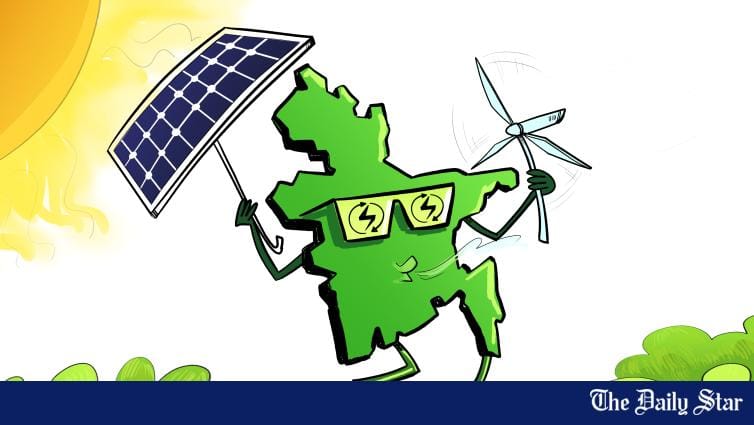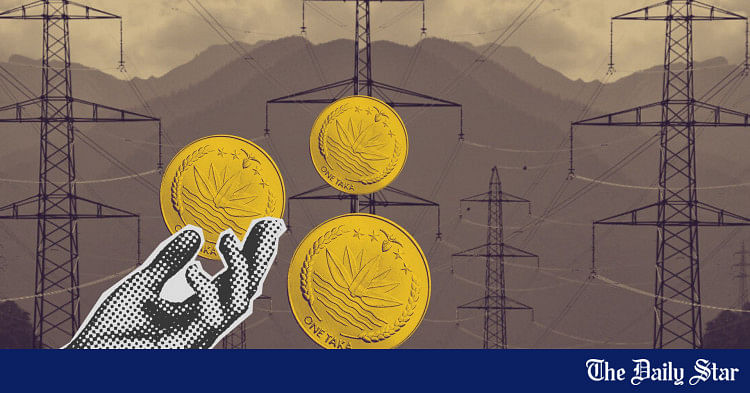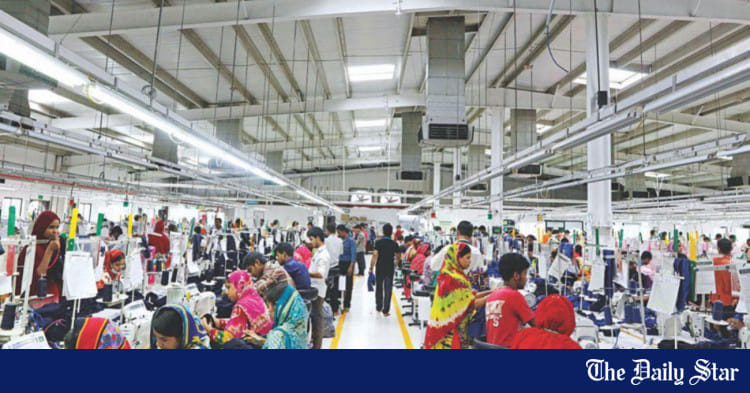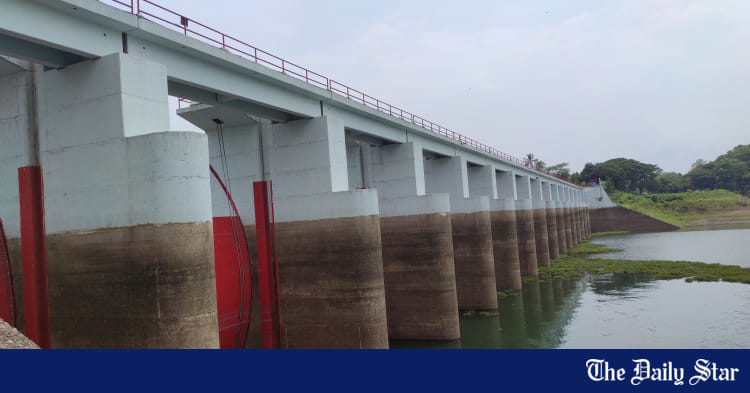- Copy to clipboard
- Thread starter
- #121
Saif
Senior Member
- Joined
- Jan 24, 2024
- Messages
- 15,397
- Reaction score
- 7,865
- Points
- 209
- Nation

- Residence

- Axis Group


Switching to renewables is easier than we think
Bangladesh’s progress towards switching to renewable energy has remained slow and uncertain.
Switching to renewables is easier than we think

ILLUSTRATION: REHNUMA PROSHOON
Energy produced from natural resources (that is, renewable energy) regenerates over the span of a human's life without depleting the planet's resources. These resources, which include biomass, tides, waves, sunshine, wind, rain, and thermal energy stored in the earth's crust, have the advantage of being accessible in some capacity from almost everywhere. They are practically inexhaustible. More importantly, they don't harm the climate or the ecosystem as much. Renewable energy is gradually becoming more affordable; it is equitable and secure, and has the potential to create jobs.
In contrast, fossil fuels like oil, coal, and natural gas are only found in finite amounts. They eventually run out as we continue to extract them. Even if they are created through natural processes, they are not replenished quickly enough to make up for what is consumed by humans. More emissions are produced by burning fossil fuels than by producing electricity from renewable sources. The key to solving the climate catastrophe is switching from fossil fuels – which now produce the majority of emissions – to renewable energy.
One of the largest financial obstacles preventing the country's transition to renewable energy is fossil fuel subsidies. The cost of subsidising the fossil fuel industry alone is enormous and includes direct subsidies, tax benefits, and costs for health and the environment that weren't factored into the pricing of fossil fuels. Subsidies for fossil fuels are unfair and inefficient.
The energy sector in Bangladesh is heavily dependent on fossil fuels. Both domestic and imported fossil fuels play a significant role in our energy production. In 2022, more than 98 percent of all energy production originated from natural gas, oil, diesel, and coal. Less than two percent of the energy mix consisted of renewables. Over the years, the reliance on fossil fuels has intensified. However, the Renewable Energy Policy of Bangladesh, which was introduced in 2008, aimed at harnessing the potential of renewable energy resources and technologies in the country. The policy set a target of meeting five percent of total power demand by 2015 and 10 percent by 2020 using renewable sources. These targets were never met. There are, however, conflicting targets in various governments' policies and plans. The Mujib Climate Prosperity Plan (MCPP) was introduced in 2021 to enhance the nation's resilience against climate change. This plan aims to reach 30 percent renewable energy share by 2030 and at least 40 percent by 2041. In contrast, under the draft Integrated Energy and Power Master Plan (IEPMP), Bangladesh has set a clean energy (renewable and nuclear) target of 40 percent by 2041. Also, the government's annual budget documents set different targets. The real picture shows that Bangladesh's progress towards switching to renewable energy has remained slow and uncertain.
There is no denying that the viability of renewable energy in the country will depend on the market price or value of renewable energy, the costs of renewable energy in comparison to those of other energy resources, policies to promote renewable energy, and environmental goals that increase the costs of using fossil fuels and/or subsidise the costs of renewable energy. As such, the wider adoption of renewable energy is hindered by pressure from fossil fuel lobbies, ineffective governmental regulations, outdated infrastructure, expensive initial installation costs, a lack of proper battery storage systems, a lack of knowledge and awareness, and a lack of relevant policies and subsidies.
To transform Bangladesh's energy systems and speed up the shift to renewable energy in the next decade or so, a few critical actions need to be prioritised. In line with the statements of the UN Secretary-General Antonio Guterres, the following actions can be suggested.
Firstly, there is a need to ensure easy access to renewable energy. Renewable energy technology needs to be accessible to everyone and not just for the wealthy. Energy from renewable sources, such as solar and wind, can be stored and released whenever people, communities, and businesses need power thanks to technologies such as battery storage systems. Due to their special ability to quickly absorb, hold, and re-inject electricity, they help increase the flexibility of the energy system. And, when combined with renewable sources, battery storage technologies can offer dependable and less costly electricity in off-grid settlements and isolated networks. Bangladesh also needs to explore the opportunities for importing renewable energy from neighbouring countries like India, Bhutan, and Nepal.
Secondly, a steady supply of raw materials and components for renewable energy is crucial in order to ensure broader access to all the necessary resources. In addition, the management of renewable energy waste is important in order to create supply chains that safeguard ecosystems.
Thirdly, there is a need to create a level playing field for technologies utilising renewable energy. Domestic policy frameworks need to be quickly changed to streamline and accelerate renewable energy projects and spur private sector investments. Policies and procedures must be put in place to lower market risk, enable investment, and provide incentives – including by streamlining the planning, permitting, and regulatory processes and avoiding bottlenecks and red tape. The adoption of solar and wind energy technologies can be accelerated by the availability of modern energy transmission infrastructure, clear and strong policies, transparent processes, and public support.
The country needs to switch energy subsidies from fossil fuels to renewable energy. One of the largest financial obstacles preventing the country's transition to renewable energy is fossil fuel subsidies. The cost of subsidising the fossil fuel industry alone is enormous and includes direct subsidies, tax benefits, and costs for health and the environment that weren't factored into the pricing of fossil fuels. Subsidies for fossil fuels are unfair and inefficient. Subsidising renewable energy instead reduces emissions and has the potential of fostering sustainable economic growth, job creation, improved public health, and greater equality, especially for the poorest and most vulnerable people.
It is also critically important to make considerable investments in renewable energy. There is a need for commitment and accountability, especially from the banks and other public and private financial institutions, which must direct their lending portfolios toward hastening the transition to renewable energy.
Finally, resources must be shifted between competing industrial sectors and political constituencies as part of a sustainable energy transition. As stakeholders in this process hold varying degrees of political and economic power, understanding how political and economic factors influence the transition to renewable energy is crucial in order to formulate effective policies and facilitate the shift to sustainable energy systems.
Dr Selim Raihan is professor at the Department of Economics in the University of Dhaka, and executive director at the South Asian Network on Economic Modeling (Sanem).
ILLUSTRATION: REHNUMA PROSHOON
Energy produced from natural resources (that is, renewable energy) regenerates over the span of a human's life without depleting the planet's resources. These resources, which include biomass, tides, waves, sunshine, wind, rain, and thermal energy stored in the earth's crust, have the advantage of being accessible in some capacity from almost everywhere. They are practically inexhaustible. More importantly, they don't harm the climate or the ecosystem as much. Renewable energy is gradually becoming more affordable; it is equitable and secure, and has the potential to create jobs.
In contrast, fossil fuels like oil, coal, and natural gas are only found in finite amounts. They eventually run out as we continue to extract them. Even if they are created through natural processes, they are not replenished quickly enough to make up for what is consumed by humans. More emissions are produced by burning fossil fuels than by producing electricity from renewable sources. The key to solving the climate catastrophe is switching from fossil fuels – which now produce the majority of emissions – to renewable energy.
One of the largest financial obstacles preventing the country's transition to renewable energy is fossil fuel subsidies. The cost of subsidising the fossil fuel industry alone is enormous and includes direct subsidies, tax benefits, and costs for health and the environment that weren't factored into the pricing of fossil fuels. Subsidies for fossil fuels are unfair and inefficient.
The energy sector in Bangladesh is heavily dependent on fossil fuels. Both domestic and imported fossil fuels play a significant role in our energy production. In 2022, more than 98 percent of all energy production originated from natural gas, oil, diesel, and coal. Less than two percent of the energy mix consisted of renewables. Over the years, the reliance on fossil fuels has intensified. However, the Renewable Energy Policy of Bangladesh, which was introduced in 2008, aimed at harnessing the potential of renewable energy resources and technologies in the country. The policy set a target of meeting five percent of total power demand by 2015 and 10 percent by 2020 using renewable sources. These targets were never met. There are, however, conflicting targets in various governments' policies and plans. The Mujib Climate Prosperity Plan (MCPP) was introduced in 2021 to enhance the nation's resilience against climate change. This plan aims to reach 30 percent renewable energy share by 2030 and at least 40 percent by 2041. In contrast, under the draft Integrated Energy and Power Master Plan (IEPMP), Bangladesh has set a clean energy (renewable and nuclear) target of 40 percent by 2041. Also, the government's annual budget documents set different targets. The real picture shows that Bangladesh's progress towards switching to renewable energy has remained slow and uncertain.
There is no denying that the viability of renewable energy in the country will depend on the market price or value of renewable energy, the costs of renewable energy in comparison to those of other energy resources, policies to promote renewable energy, and environmental goals that increase the costs of using fossil fuels and/or subsidise the costs of renewable energy. As such, the wider adoption of renewable energy is hindered by pressure from fossil fuel lobbies, ineffective governmental regulations, outdated infrastructure, expensive initial installation costs, a lack of proper battery storage systems, a lack of knowledge and awareness, and a lack of relevant policies and subsidies.
To transform Bangladesh's energy systems and speed up the shift to renewable energy in the next decade or so, a few critical actions need to be prioritised. In line with the statements of the UN Secretary-General Antonio Guterres, the following actions can be suggested.
Firstly, there is a need to ensure easy access to renewable energy. Renewable energy technology needs to be accessible to everyone and not just for the wealthy. Energy from renewable sources, such as solar and wind, can be stored and released whenever people, communities, and businesses need power thanks to technologies such as battery storage systems. Due to their special ability to quickly absorb, hold, and re-inject electricity, they help increase the flexibility of the energy system. And, when combined with renewable sources, battery storage technologies can offer dependable and less costly electricity in off-grid settlements and isolated networks. Bangladesh also needs to explore the opportunities for importing renewable energy from neighbouring countries like India, Bhutan, and Nepal.
Secondly, a steady supply of raw materials and components for renewable energy is crucial in order to ensure broader access to all the necessary resources. In addition, the management of renewable energy waste is important in order to create supply chains that safeguard ecosystems.
Thirdly, there is a need to create a level playing field for technologies utilising renewable energy. Domestic policy frameworks need to be quickly changed to streamline and accelerate renewable energy projects and spur private sector investments. Policies and procedures must be put in place to lower market risk, enable investment, and provide incentives – including by streamlining the planning, permitting, and regulatory processes and avoiding bottlenecks and red tape. The adoption of solar and wind energy technologies can be accelerated by the availability of modern energy transmission infrastructure, clear and strong policies, transparent processes, and public support.
The country needs to switch energy subsidies from fossil fuels to renewable energy. One of the largest financial obstacles preventing the country's transition to renewable energy is fossil fuel subsidies. The cost of subsidising the fossil fuel industry alone is enormous and includes direct subsidies, tax benefits, and costs for health and the environment that weren't factored into the pricing of fossil fuels. Subsidies for fossil fuels are unfair and inefficient. Subsidising renewable energy instead reduces emissions and has the potential of fostering sustainable economic growth, job creation, improved public health, and greater equality, especially for the poorest and most vulnerable people.
It is also critically important to make considerable investments in renewable energy. There is a need for commitment and accountability, especially from the banks and other public and private financial institutions, which must direct their lending portfolios toward hastening the transition to renewable energy.
Finally, resources must be shifted between competing industrial sectors and political constituencies as part of a sustainable energy transition. As stakeholders in this process hold varying degrees of political and economic power, understanding how political and economic factors influence the transition to renewable energy is crucial in order to formulate effective policies and facilitate the shift to sustainable energy systems.
Dr Selim Raihan is professor at the Department of Economics in the University of Dhaka, and executive director at the South Asian Network on Economic Modeling (Sanem).

















